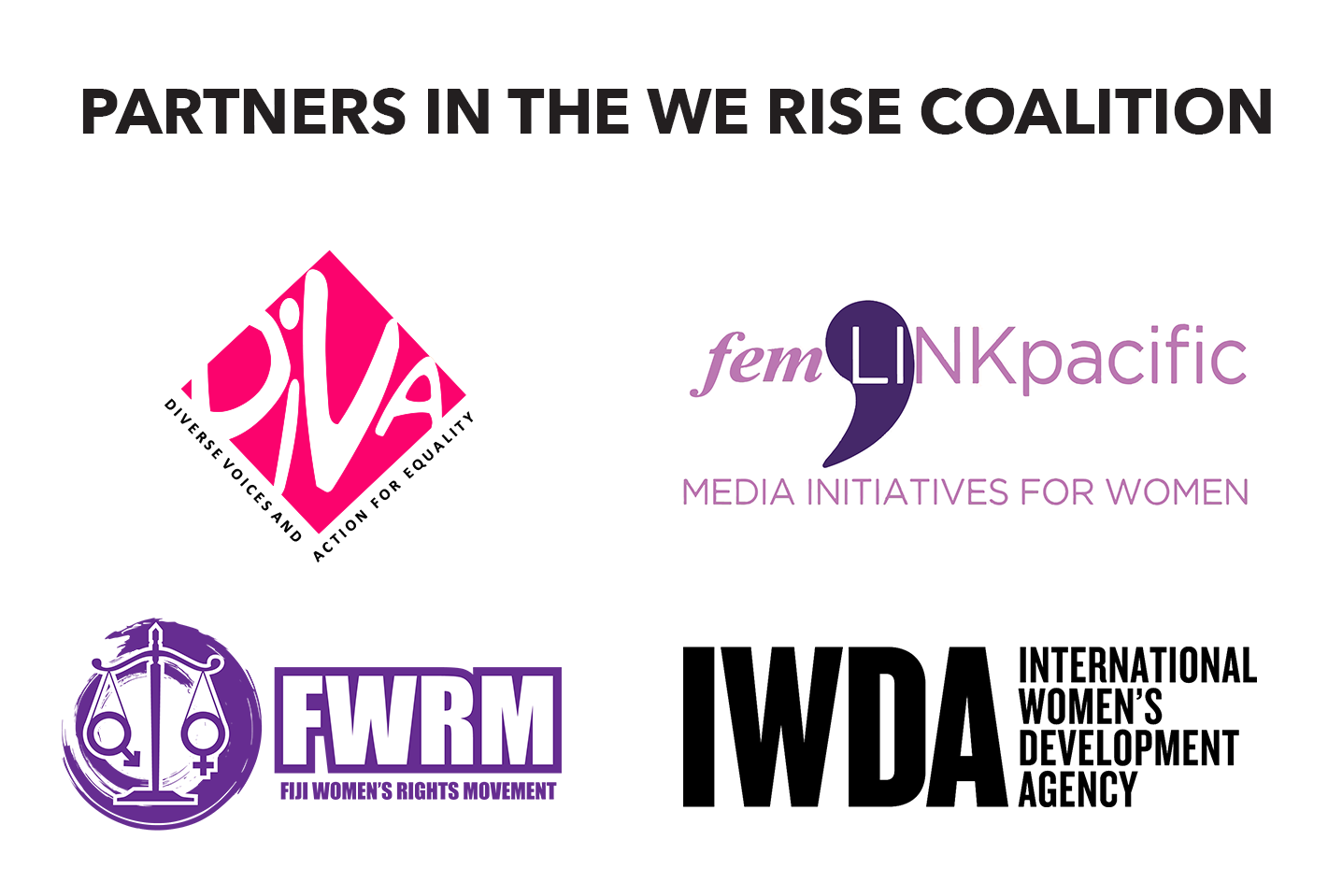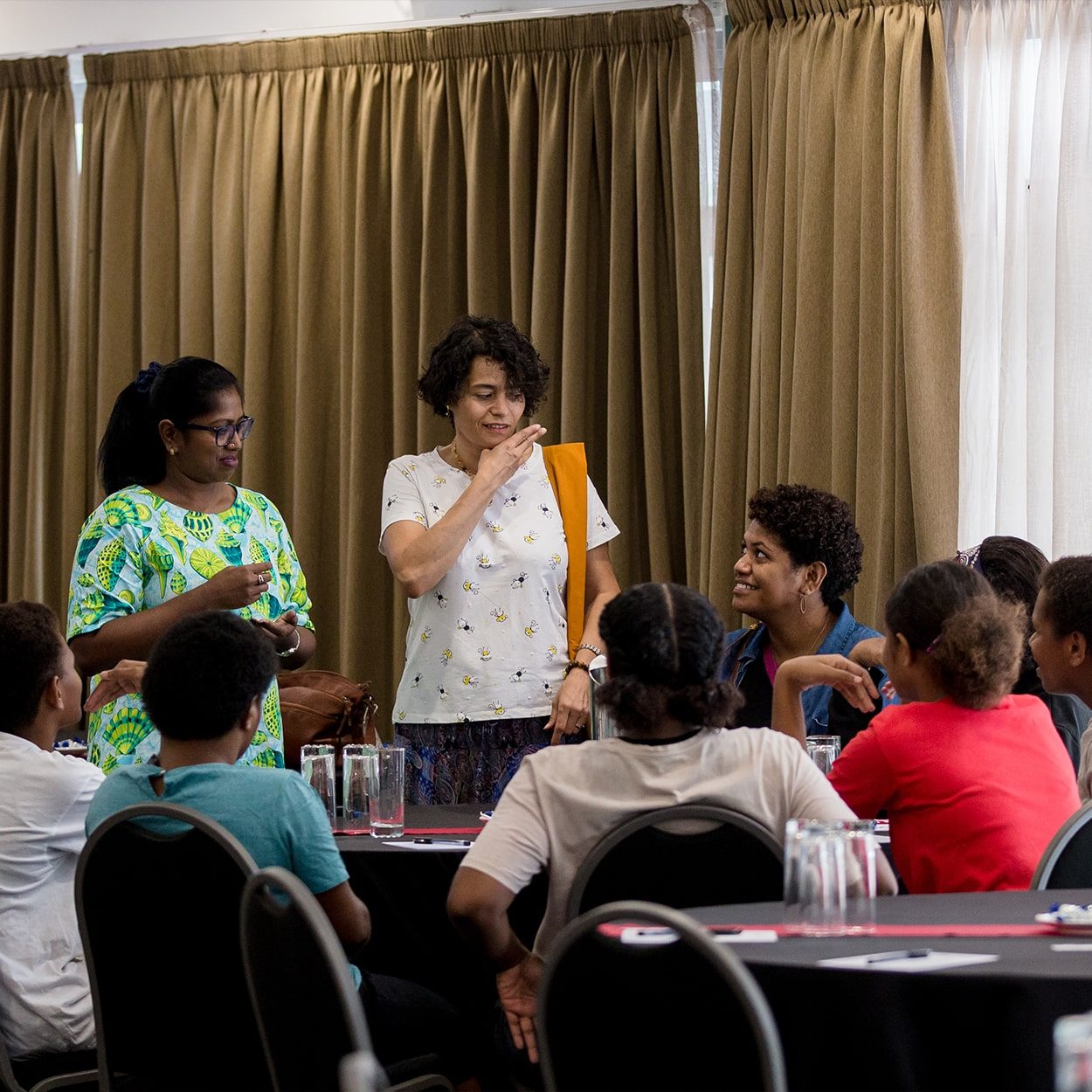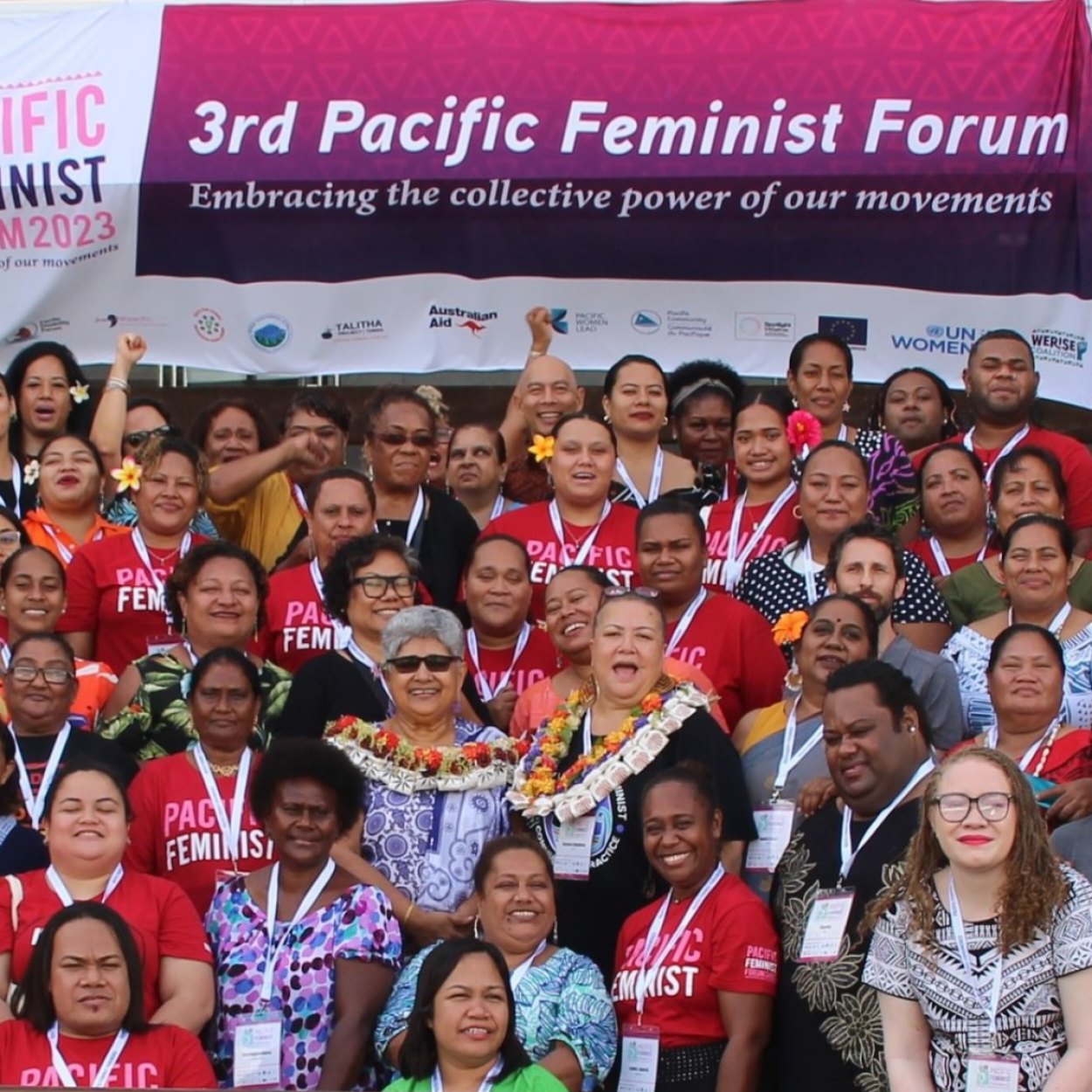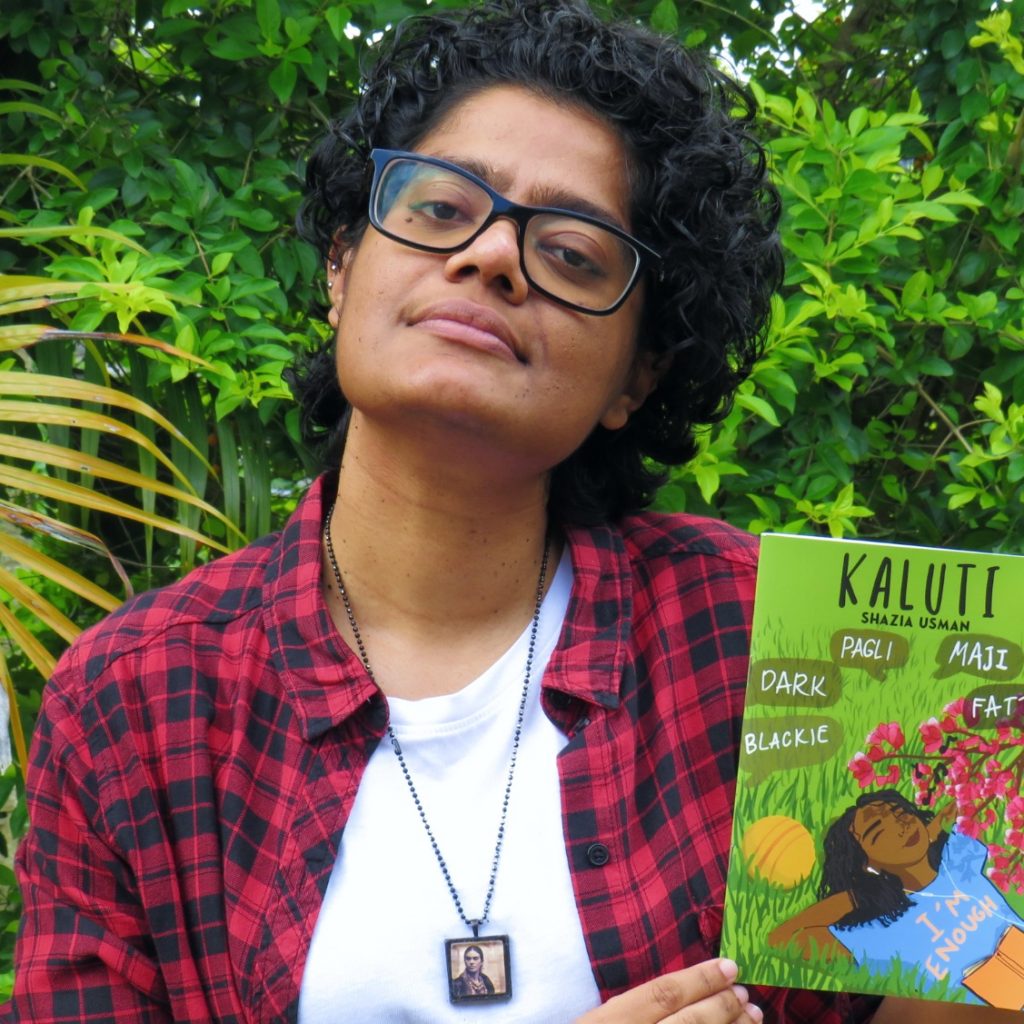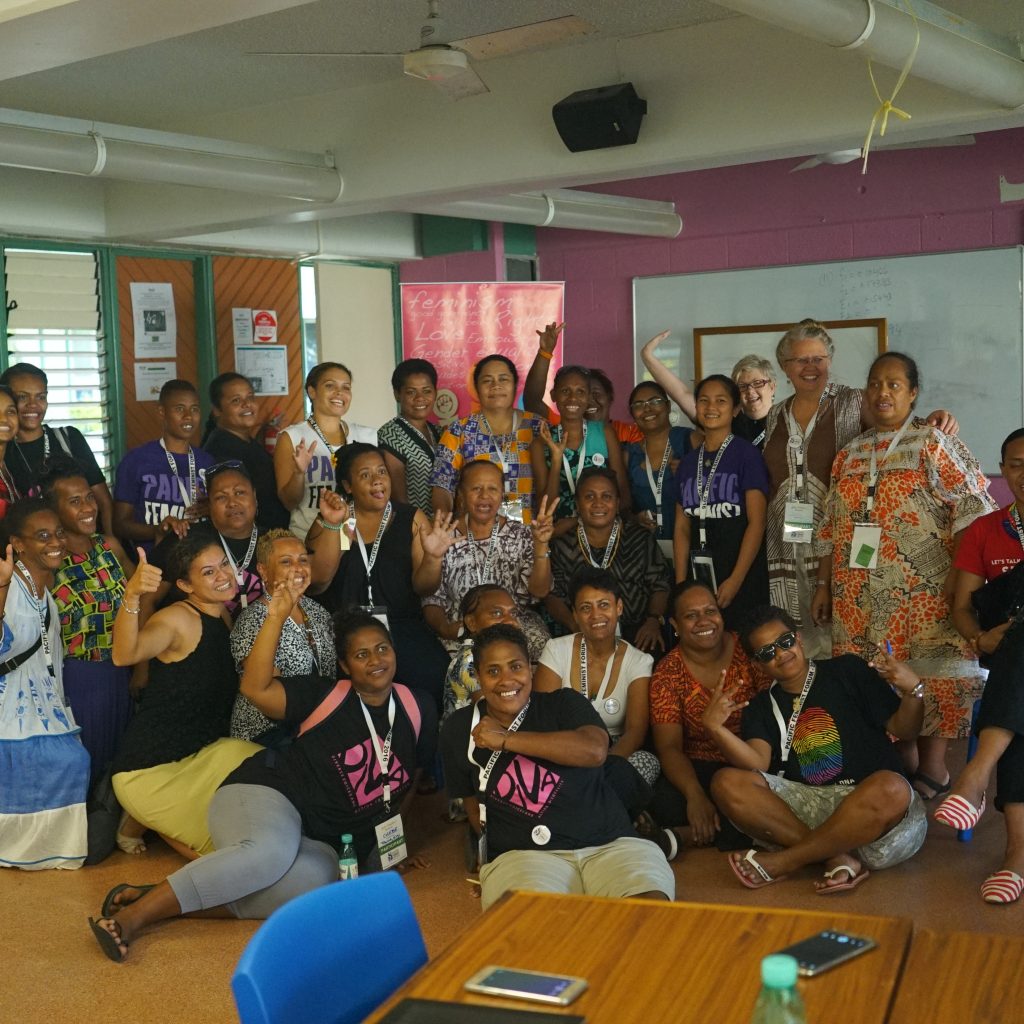
Reflections from the Pacific Feminist Forum: Feminist leadership, diversity and movement building
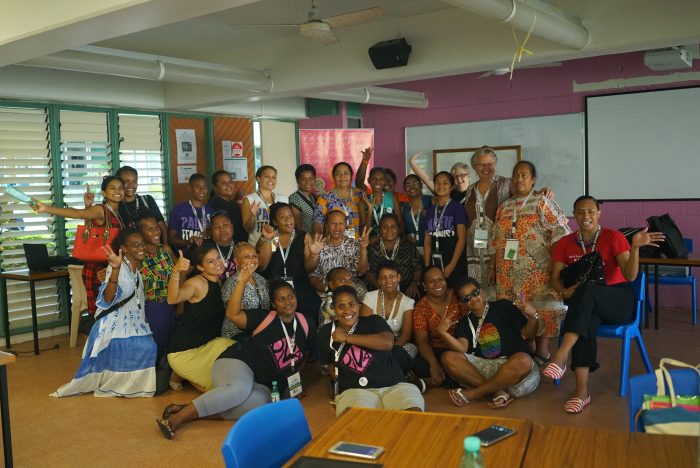
Written by Meghan Cooper and Elena Leddra.
On 28-30 November IWDA staff members Brianna Davidson, Elena Leddra, Donna McSkimming and Meghan Cooper joined 130+ Pacific feminist activists and Women’s Human Rights Defenders at the University of the South Pacific, in Suva, for the inaugural Pacific Feminist Forum. IWDA staff attended alongside seven of our Pacific partner organisations.
“We are witnessing history in the making.”
These were the words of one participant during the opening plenary of the inaugural Pacific Feminist Forum.
The Forum was about taking stock of women rights struggles past and present, to nurture the current movement and celebrate all that it has achieved. It was a space for learning, sharing and connecting for diverse and dynamic women leaders and activists from the Pacific.
It was also a moment for the tough conversations and tears. It was a time to remember women’s human rights defenders lost, and to raise debates about the state of the women’s movement in the Pacific. However difficult, these discussions made the Forum stronger, more honest and more transformative.
As a women’s organisation, we are continuing to reflect on the important messages we heard throughout the 3 days. We heard about the common struggles across feminist activists, and organisations in the Pacific, and were reminded of what feminist leadership, and intersectionality looks like.
Intergenerational leadership was visible and powerful in all aspects of the Forum – from GIRLS led workshops, to open mic poetry and stories from Emerging Leaders. Young women showed us the strength they hold, the voices they have and the specific issues they are wanting to discuss. Bullying, racism, body image/body shaming, sexual and reproductive health and rights, and lacking voice in decision-making processes remain of high priority.
Intersectionality was present in all spaces and discussed of the Forum bringing visibility to the diversity of experiences and identities of each participant. Participants were resolute of the indivisibility of climate justice to women’s rights, land rights, economic opportunities. They pushed for understandings of how gender based violence is closely linked to gender inequality, women’s leadership and access to decision making, as well as to sexual and reproductive health and rights.
Many LGBTIQ people spoke about how their identities and lives are dissected, that their voices are never recognised in decision-making, and that legal recognition of diverse genders is a priority. For women with a disability, concerns were raised about the lack of attention and services available across the Pacific.
This list is long, and connections wide, but the important message was to think ‘outside of the box’ when considering issues that women in the Pacific face and when developing programs, interventions or strategies for change. This thinking only comes through solid connections to local context, knowledge and skills in order to understand the intersecting identities and experiences of anyone, or anywhere we seek to bring about change.
Reflecting on past, present and future struggles in the Pacific women’s movement we heard about the coalitions, alliances and networks who have long been drivers of change. The Fiji NGO Coalition on Human Rights, the Pacific Violence Against Women Network, and Pacific Partnership for Gender Equality, Climate Change and Sustainable Development are just a few.
The Fiji Women’s Forum and We Rise Coalition spoke about navigating diversity among organisations. Organisations of different sizes, constituents and structures but who work together through shared vision and spaces we seek to influence. In negotiating organisational differences, participants spoke of the need to put your head and your heart forward in all you do. This was deemed to be the only way you can navigate differences and engage in honest discussions.
Each have contributed to the state of the Pacific women’s movement today driving change for, by and with communities.
A key outcome of the Forum was the Charter of Feminist Principles for Pacific Feminists. This document sets out the collective principles key to the work of Pacific Feminists and is intended to be a living document to guide analysis and practice.
For IWDA, the Forum and Charter is a key document to inform our work as an ally to the Pacific women’s movement and something we whole heartedly endorse (find out how you can too!).
As one participant reminded us, to stand in solidarity with a struggle, means walking out the room, away from Forum like we saw last week, and doing something!
This is why we continue to support the work of our 16 partners across 9 countries in Asia and the Pacific. The Forum reminded us of the importance of this work. We were left inspired, humbled and proud to have been a part of this herstorical moment.
Closing note: The Forum was a key part of the We Rise 2 program – a 3.5 year program of work being implemented by the We Rise Coalition with funding support from the Australian Government, Pacific Women Shaping Pacific Development Program.

